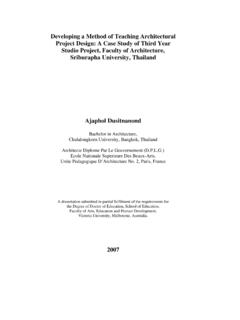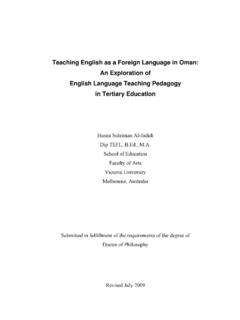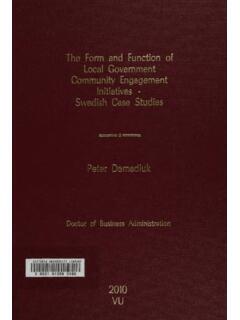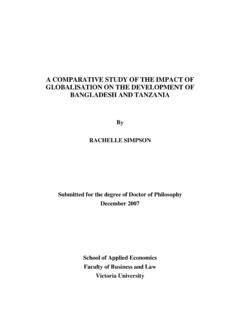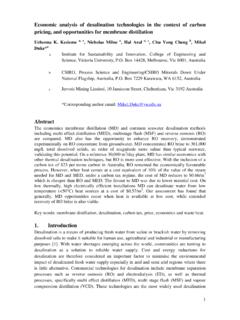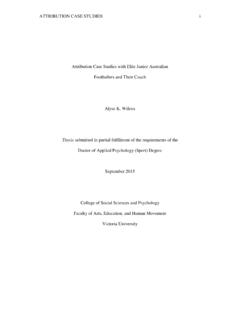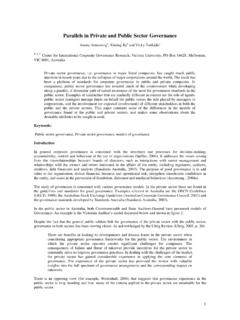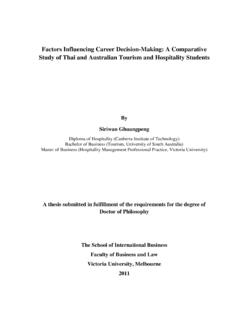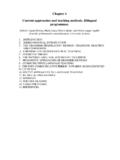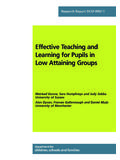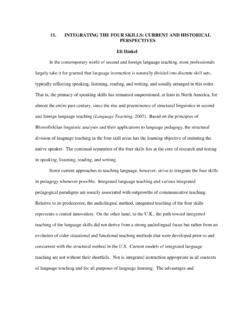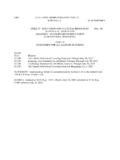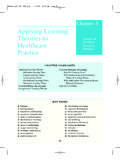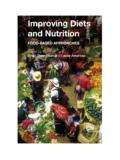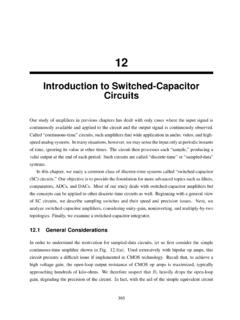Transcription of The Importance of English Language Learning and …
1 The Importance of English Language Learning and teaching in South Korea Sunny Gavran School of Education, The Faculty of Arts, Education and Human Development Victoria University Submitted in fulfilment of the requirements of the degree of Master of Education 2013 Abstract This research investigates the impact of rote Learning , national examinations and types of motivation to learn English Language on the way English Language is taught and learnt in Korea. The research is framed around two questions, using qualitative data in a discursive manner (Holstein & Gubrium, 2005).
2 Qualitative and interpretive methods were applied in this research. The research examined the various influential actors involved with English Language Learning and teaching in Korea such as the methods of Learning and teaching English Language in Korea, and policy makers impact on the way English Language is being taught and learnt in Korea. Professional diary entries written by the researcher during a one year English Language teaching experience in Korea provided the core data for this research. Searching for support in the literature for the diary entries lead to three themes: the method of rote Learning , the significance of exams, and the types of motivation to learn the English Language .
3 These three themes will be the basis for three scenarios that will offer changes to the current Learning and teaching English in Korea. This research concludes with a proposed Scenario Model of Educational Policy Development. The model suggests education policy development which proposes a process of thinking about and implementing protocols and issues related to education with specific application to English Language teaching and Learning in the Korean context. Student Declaration I, Sunny Gavran, declare that the Master by Research thesis entitled The Importance of English Language Learning and teaching in South Korea is no more than 60,000 words in length including quotes and exclusive of tables, figures, appendices, bibliography, references and footnotes.
4 This thesis contains no material that has been submitted previously, in whole or in part, for the award of any other academic degree or diploma. Except where otherwise indicated, this thesis is my own work . Signature Date Note: The Victoria University APA system of referencing accessed from Victoria University library requires the inclusion of authors initials in the in-text citation where authors of different references have the same family name. Acknowledgments This research would be impossible to complete without the love and support of my husband, Ante, and our three beautiful children, Jonathan, Amiel and Nathaniel.
5 In addition, I am heartily thankful to my supervisors, Dr. Neil Hooley and Mr. Martyn Brogan, whose encouragement, supervision and support from the preliminary to the concluding stages enabled me to develop an understanding of English Language education and the conduct of research. Table of Contents Title .. i ii Student iii v Table of Contents .. vi List of vii Chapter 1. 9 9 Significance of the 11 Chapter 2. Literature Review .. 13 General Educational Background of Korean 13 The End of the 19th Century-The Beginning of English Language Education in 14 The Japanese Colonial 15 The Korean War 16 The Seoul Olympics and its Influence on Korean to Study 17 The Korean Curriculum-Constructing the 18 Creating the Korean 19 The English Language and its Representation in 25 Approaches to English Language teaching in 27 The Grammar Translation 28 The Direct 30 Oral Approach and Audiolingual 31 Cognitive 33 Other 34 Comprehension
6 Based 34 The Natural 34 Communicative 35 35 Communicative Approach Implementation in 37 Models of Education and 38 Discipline-based and Inquiry-based Curriculum 38 Content-based 40 Thematic 41 Teacher-Centred/Student-Centres 41 Scenario 42 Diaries in 44 Diary Entries in Qualitative 45 Chapter 3. Methodology Research question and 47 Qualitative 47 Document 48 The Researcher s 48 Grounded Theory in Qualitative 49 Interpretive 49 Validity in the 50 The Scenarios 51 The Research 52 Chapter 4.
7 Discussion and Findings Themes Arising from Data 54 Theme 1- Rote 58 Theme 2 National 64 Theme 3 Motivation .. 70 Chapter 5. Scenarios Scenario 1 .. 75 Scenario 2 .. 78 Scenario 3 .. 81 Commentary for the 83 Chapter 6. Conclusion: Development of a Scenario Model for Educational Policy 87 93 List of Tables Table Korean Curriculum 21 Table Research 52 Table Organisation and Decoding of Documents and Diary 54 Table Consolidation of Research Questions and Themes 58 Scenario 91 9 Chapter 1 Introduction Through an investigation of another educational system, as different as it is, we may be able to learn about our own.
8 A better understanding of the Korean* educational system may enable Australian educators to expand their ideas, learn from others success, possibly bring the two cultures closer and create an environment of positive educational exchange. This may be of benefit to the Australian and Korean educational systems. While gathering data to investigate the Korean English Language teaching and Learning environment, two questions surfaced as being useful to explain current realities in the Korean educational system: 1. How do rote Learning , national examinations and types of motivation to learn the English Language , impact on English Language teaching and Learning in Korea?
9 2. How can we construct a new tool in education, scenario building, to explore the relevance of these themes in the Korean context? The first question emerged from three themes identified in the researcher s diary entries that were made while teaching the English Language in Korea. The second question proposes future thinking and further research in the field of education with the use of a scenario building method, which will be developed and explained in Chapter 6. Given that this research is about education, and consequently about the people involved in and affected by educational policies and practices, issues related to ethics and research must be addressed.
10 Ethics In qualitative research in education, the researcher tries to adopt, create, and use a variety of non quantitative research methods to describe the rich interpersonal-social-cultural contexts of education more fully than quantitative research can do (Soltis, 1989, p. 125). Qualitative researchers are involved in the processes of exploration, examination and description of people in their natural environments. As such, ethics are a concern to the researcher as they are ..the key consideration in the design of social research (Babbie, 2007, p.)
